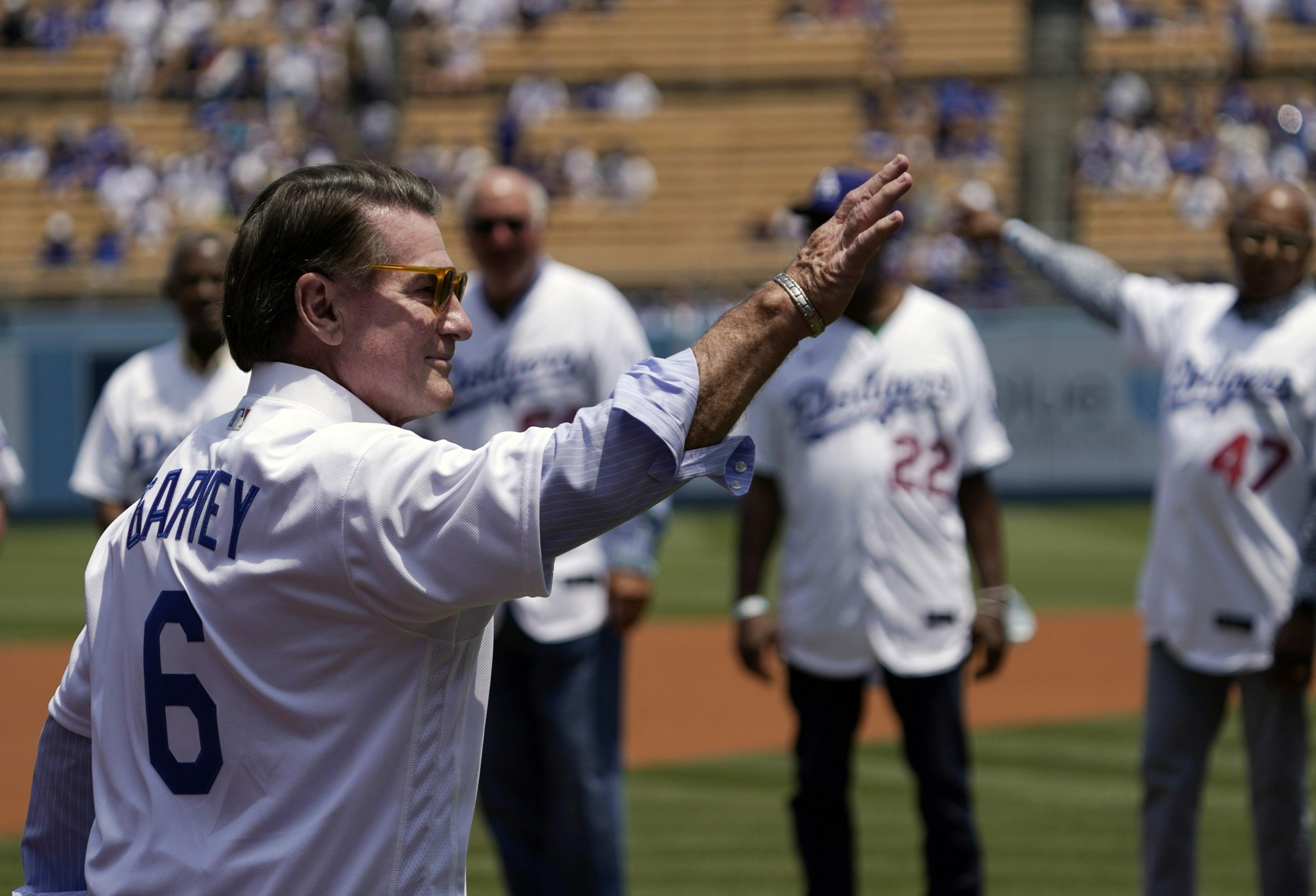Republican former baseball star Steve Garvey and Democratic Rep. Adam Schiff will compete in November to decide who will fill the U.S. Senate seat held for three decades by Dianne Feinstein.
With 58% of precincts partially reporting Tuesday evening, Schiff was in the lead with nearly 34% of the vote, with Garvey not far behind with more than 31%.
Katie Porter and Barbara Lee, both prominent Democrats, also ran for the seat in what became a hotly contested race. Porter was trailing Tuesday with around 17% of the vote, while Lee was in fourth place with 9%.
Garvey’s strong showing means the November election will mark a rare opportunity for the GOP to compete in a marquee statewide race in this Democratic stronghold.
The matchup also means that California won’t have a woman in the Senate for the first time in more than three decades.
Garvey, a former baseball MVP who played for the Los Angeles Dodgers, celebrated with cheering supporters at a hotel in Palm Desert, his hometown, where he warned Schiff not to underestimate him despite the state’s Democratic tilt. He said he would run a campaign that would appeal across party lines, focusing on inflation, the state’s unchecked homeless crisis and rising crime rates in cities.
“They say in the general election that we’re going to strike out,” Garvey said. “Know this: It ain’t over ‘til it’s over.”
Feinstein, an icon of San Francisco politics and a city native, died in September 2023 after serving for over 30 years. Gov. Gavin Newsom appointed Laphonza Butler to fill the position, but she did not seek election.
In San Francisco, Garvey had much less support than he did statewide. Early returns showed San Francisco voters’ first choice was Schiff at about 36%, followed by Porter with 23% and Lee with 20%. Garvey got around 9% in the city.
Democrats are expected to easily hold the Senate seat in November, a relief for the party as it seeks to defend a narrow majority. A Republican hasn’t won a Senate race in California since 1988.
But the campaign nonetheless represents a new era in California politics, which was long dominated by Feinstein and a handful of other veteran politicians.
Feinstein’s term was due to expire in January 2025. California’s top-two primary system meant that on Tuesday, candidates were running in a contest to serve in that Senate seat for six years, a term that begins in January 2025.

The top two vote-getters in the Tuesday primary, regardless of party, move on to a run-off in the General Election in November—and the winner of that race will be sworn in as senator two months later. Twenty-seven candidates vied for the full six-year term.
But there was also the matter of Feinstein’s unfinished term, and that’s where things got complicated.
Butler will remain in office until November. On Tuesday, voters chose from among seven candidates to serve out Feinstein’s unfinished term from November until January 2025.
The top two vote-getters in this separate, partial-term contest get to move on to the November General Election, and the winner will be sworn in to serve as California’s newest U.S. senator for just two months, from November 2024 to January 2025.
The race is California’s first open U.S. Senate contest since 2016. Even before Feinstein announced in early 2023 she would not seek reelection, many of the state’s ambitious Democrats were eagerly awaiting their shot at the coveted seat.
Garvey’s candidacy, buoyed by name recognition among older voters in particular, threw an unexpected twist into the race. The dynamic between Schiff and Porter grew increasingly tense in the campaign’s closing weeks as both vied for a general election spot.
